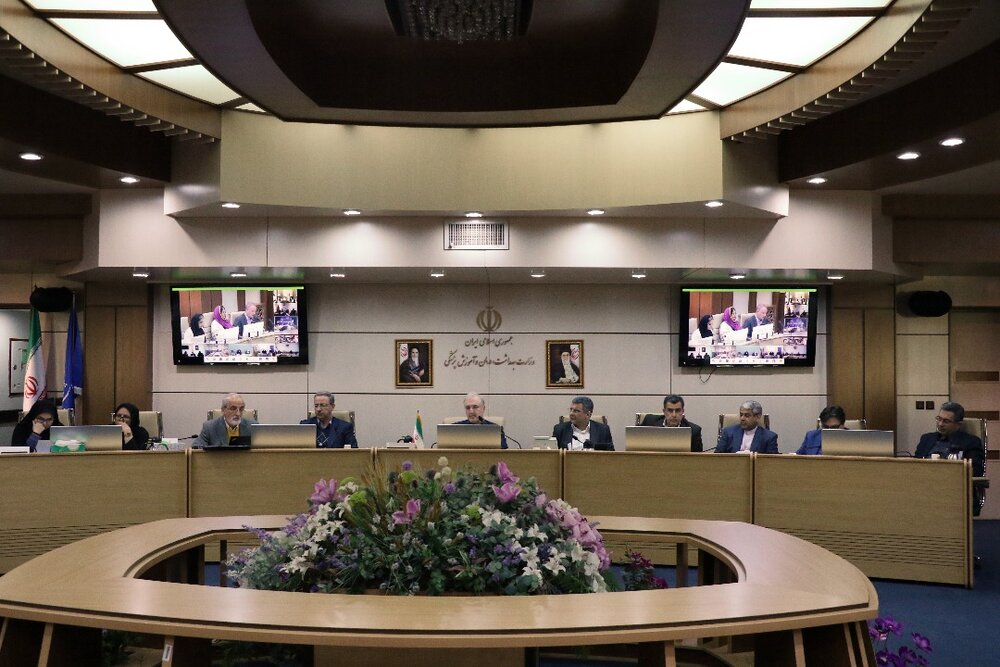WHO acknowledges Iran’s commitment to universal health coverage

TEHRAN – Christoph Hamelmann, World Health Organization (WHO) Representative in Iran, has acknowledged Iran’s efforts toward promotion of universal health coverage.
“We highly acknowledge the high-level commitment and the enormous achievements Iran has made during the last 40 years towards universal health coverage (UHC),” he said in a conference held in Tehran on Sunday.
Celebrated annually on December 12, Universal Health Coverage Day is promoted by the WHO. December 12 is the anniversary of the first unanimous United Nations resolution calling for all nations to provide for their citizens affordable, quality health care.
“It is my pleasure and honor to contribute to today’s UHC Day ceremony under the theme of “Keep the Promise”.
Universal health coverage is the promise for availability and accessibility of affordable and effective quality health services to all those in need, at the highest attainable standard.
Whether building a strong PHC system, building health workforce and infrastructure on best evidence such as detailed burden of disease data, making health financial protection one of the key pillars of the social safety net, having a clear focus on the poorest and most vulnerable parts of the population: WHO is promoting many examples of best practice in other countries in the region and beyond,” Hamelmann stated.
UHC cannot be achieved without addressing all determinants of health
Hamelmann went on to note that “Today, much effort is needed to sustain these achievements and to adjust the health system to become more effective, efficient and resilient. In all of these aspects, WHO is closely supporting the Ministry of Health and Medical Education as evidenced also in our new joint program framework for 2020 and 2021. WHO holds also the Chair of the Health Pillar of the UN country team in Iran, and in this function we facilitate and coordinate the whole UN support to the MoHME together with our partner UN agencies such as UNICEF, UNDP, UNFPA, and others.
Universal health coverage cannot be achieved without addressing the social, economic and environmental determinants of health through health in all policies approach. We are ready to increase further our efforts to support you in providing living and working environments that allow people to live and stay healthy and productive in the first place.
Universal health coverage can also not be achieved without being prepared for emergencies and addressing essential health needs in a timely and comprehensive manner when emergencies happen. We have great respect for the capacities of the national emergency medical services and are on stand-by when you call on our support, together with the other UN agencies on the ground.”
“The impact of the unilateral sanctions on the health sector and the health of the population is a threat to universal health coverage in Iran and the overall goal of health for all. The many projects of the Ministry to increase further the resilience of the health system, be it through further strengthening the PHC, for example through the one household – one health post initiative, or through accelerating the process from innovation to production and scale-up of health technologies, or through fighting inefficiencies and misuse of resources and thereby strengthening the integrity and performance of the health sector - these again are all areas in which WHO is working closely with the Ministry. However, no national health system can be completely self-sustainable – WHO and our partner UN agencies working together under the umbrella of the UN Procurement for Health (Pro-Health) group of the UN country team have offered support to address procurement and supply chain problems of the Ministry from the very beginning of the introduction of unilateral sanctions – this offer has not yet been utilized to the extent possible.
Before I close, I want to acknowledge the recent letter of HE Minister Dr. Namaki to the Director-General of WHO alerting about the impact of the sanctions on Universal Health Coverage and on the health of the people living in Iran. As the WHO Representative in Iran, I can assure you that safeguarding health for all is THE PRIORITY of all our efforts, and we will continue to do all we can to work closely with you, Dr. Namaki, and the Ministry of Health and Medical Education on keeping our promises to the people living in Iran towards universal health coverage and health for all.” Hamelmann concluded.
New system of health services to be implemented next year
Iranian Health Minister Saeed Namaki for his part announced that a new system of health services, called the universal health coverage system, will replace health reform plan in the next Iranian calendar year (to start March 20, 2020), as an upgraded program of the primary care system.
“We live in conditions where the country is under outrageous sanctions, and we are hard-pressed to provide medicine and medical facilities for the people,” he lamented.
In the first phase of health sector reform, the Primary Health Care (PHC) system was deployed nationwide in the 1980s, and through which many communicable diseases through vaccination and primary care were contained.
Although some contagious diseases such as HIV and common human-animal transmitted diseases are still challenging, the major challenge now is the increasing prevalence of non-communicable diseases such as heart disease, diabetes, cancer, and respiratory diseases, he also said.
“Of course, with the implementation of the health reform plan, important steps have been taken in this regard and we have come closer to establishing a universal health coverage system,” he concluded.
FB/MG

Leave a Comment